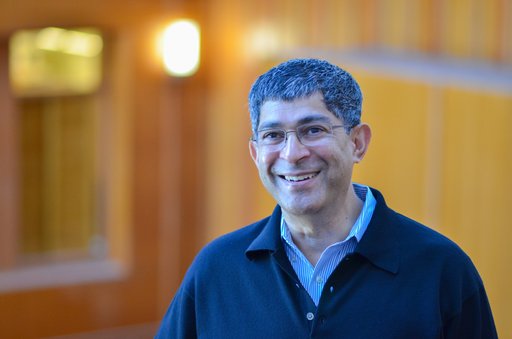Dr. John Kuriyan earned his PhD in 1986 from the Massachusetts Institute of Technology. He was a post-doctoral fellow with Professors Martin Karplus (Harvard) and Gregory A. Petsko (MIT). From 1987 to 2001 he was on the faculty of The Rockefeller University, New York, where he was promoted to full Professor in 1993. He is a Professor of Molecular and Cell Biology and also of Chemistry at the University of California, Berkeley, a position he has held since 2001. Dr. Kuriyan is also an investigator of the Howard Hughes Medical Institute, having been appointed in 1990. He is a member of the U.S. National Academy of Science and a Foreign Member of the Royal Society (London).
Dr. Kuriyan’s research concerns the structure, mechanism and evolution of signaling proteins, particularly protein kinases. His laboratory uses structural analysis and computer simulations, as well as biochemical, biophysical, and cell biological analyses to elucidate mechanisms. Breakthroughs from the lab have included determining the auto-inhibited structures of several tyrosine kinases, including Src-family and Abl kinases, and elucidating the mechanism of allosteric activation of the kinase domains of the EGF receptor. For Abl, the delineation by his laboratory of the mechanism of inhibition by the cancer drug Gleevec, and the discovery of regulation by the myristoylated N-terminal tail (with Giulio Superti-Furga) has provided key insights for cancer drug discovery. His laboratory has provided a fundamental understanding of the structure and regulation several other signaling proteins, including STATs, the Ras activator SOS, and calcium/calmodulin-dependent protein kinase-II. These structural insights have helped understand how the misregulation of these enzymes is often coupled to cancer and immune diseases. His lab has also made fundamental contributions to understanding the structural basis for high-speed DNA replication.
Title of talk:
Structural insights into the regulation of Ca2+/Calmodulin-dependent protein kinase II (CaMKII)
